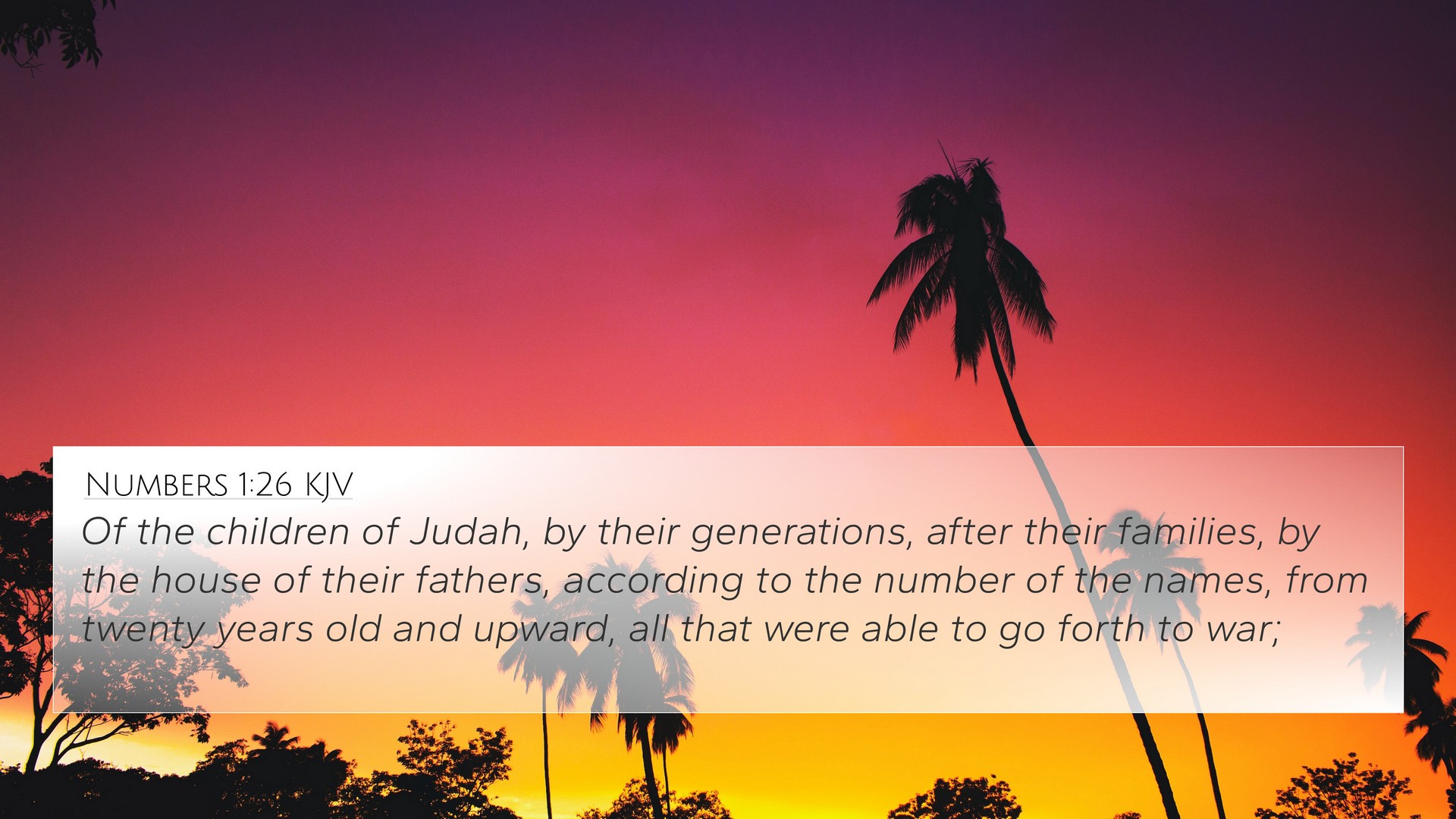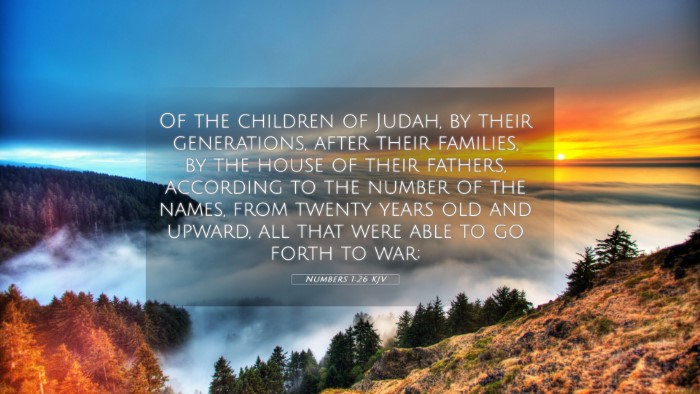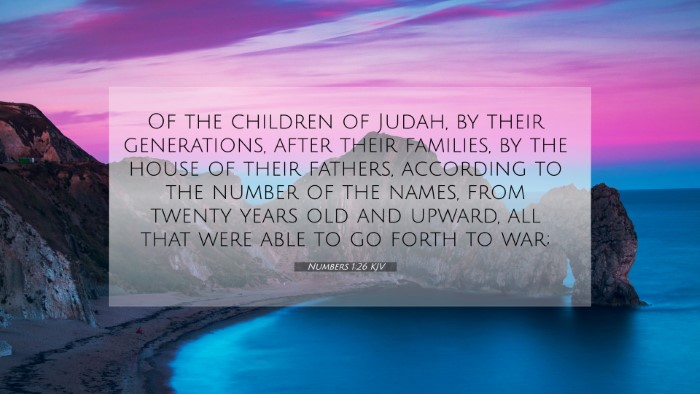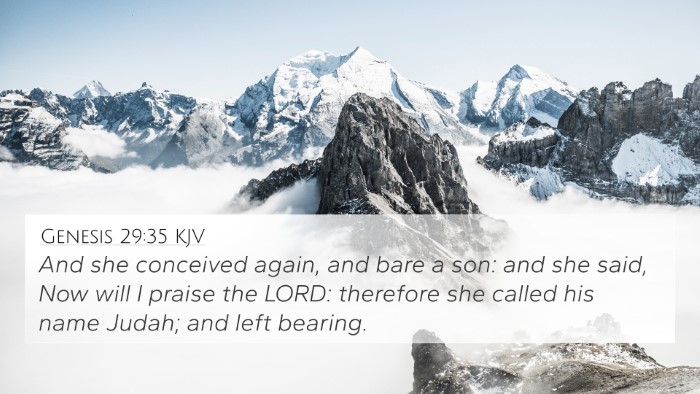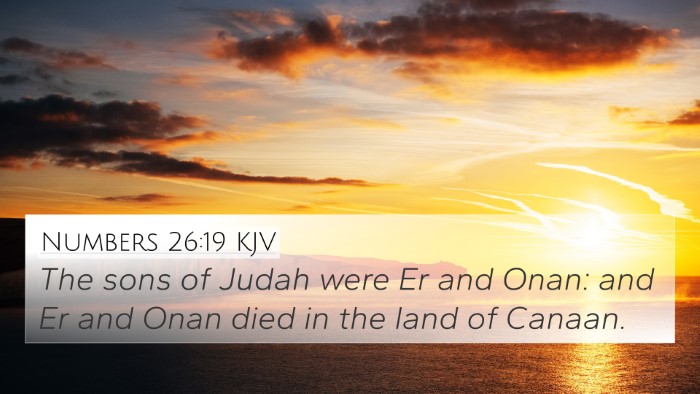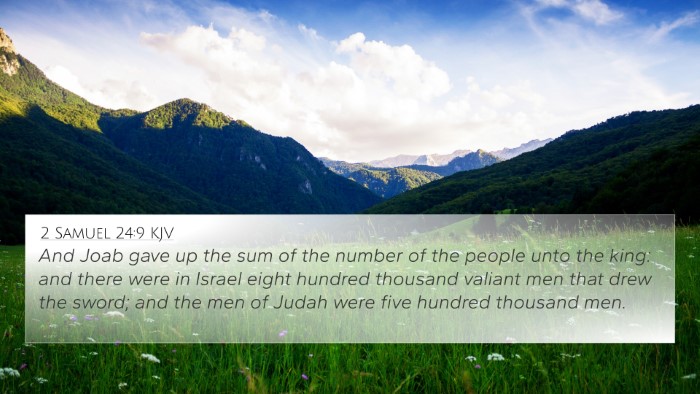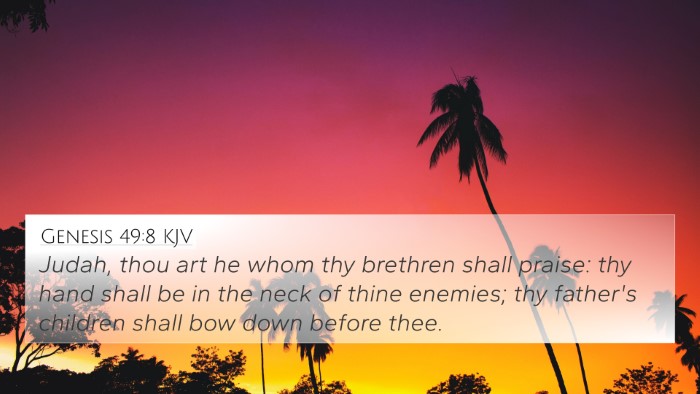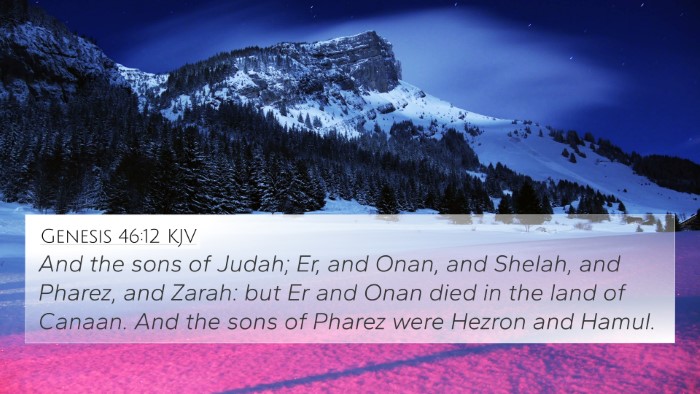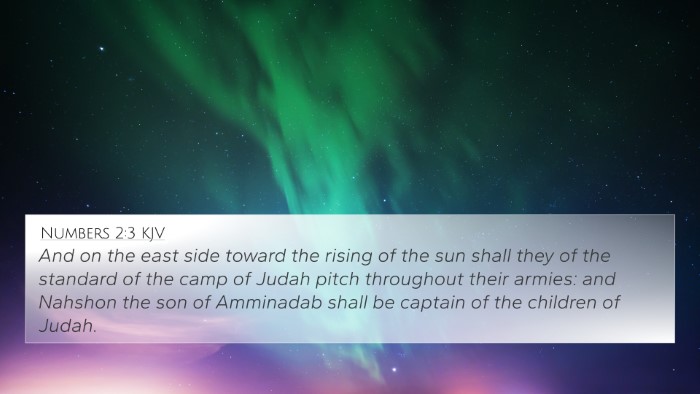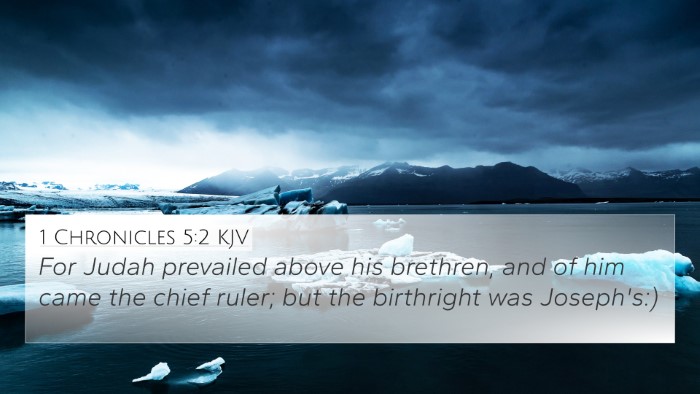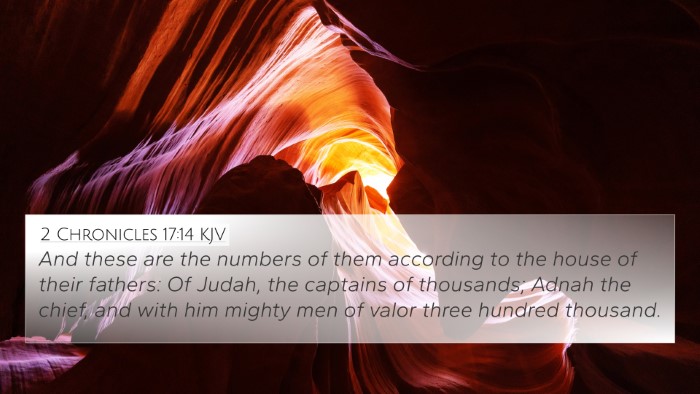Understanding Numbers 1:26
Numbers 1:26 states: "Of the children of Judah, by their generations, after their families, by the house of their fathers, according to the number of the names, from twenty years old and upward, all that were able to go forth to war;"
Overview of the Verse
This verse is part of a larger census accounting in the Book of Numbers, where Moses is instructed by God to take a census of the Israelites. The specific mention of the tribe of Judah emphasizes their significance and leadership role among the tribes of Israel. This verse prepares the groundwork for understanding the organization of the Israelite community as they prepare for their journey to the Promised Land.
Commentary Insights
The comments of various biblical scholars provide deeper insight into this verse:
- Matthew Henry: He notes that the census represents God's order and the necessity of being prepared for battle. The mention of being "able to go forth to war" reflects the need for readiness and the importance of each man's role in the larger narrative of Israel's journey.
- Albert Barnes: Barnes highlights that the numerical organization of the tribes showcases God’s sovereignty and the importance of order in Israel’s camp. The tribe of Judah, being counted first, symbolizes their preeminence and leadership among the tribes.
- Adam Clarke: Clarke elaborates on the specific count of eligible men and emphasizes the cultural and military implications of such a census. He connects the need for a fighting force with divine providence guiding Israel against their enemies.
Theological Themes
This verse and the surrounding passages evoke several theological themes:
- Divine Order: The organization of the Israelite camp is a representation of divine order, as God meticulously details the structure of the community.
- Preparation for Warfare: The readiness for battle signifies the constant spiritual and physical vigilance that God's people must maintain.
- Tribal Identity: The emphasis on the tribe of Judah highlights the significance of tribal identities in the formation of Israel as a nation.
Cross-References
Numbers 1:26 has several relevant cross-references that enhance its meaning and context:
- Genesis 49:8-10: Prophecy regarding Judah's leadership and strength, reinforcing their preeminence as displayed in this census.
- Exodus 38:26: Another instance of organizing and counting the people of Israel, highlighting God's ongoing work in establishing His nation.
- 1 Chronicles 5:2: A reminder of Judah's connection to the royal lineage, connecting the tribe to King David and ultimately to Christ.
- Hebrews 7:14: A New Testament validation of the tribe of Judah's significance in the context of Jesus' priesthood.
- Luke 3:33: The genealogy of Jesus includes Judah, illustrating the enduring legacy of this tribe through scripture.
- Revelation 5:5: The Lion of the tribe of Judah references Jesus, indicating that the tribe plays a crucial role in the redemptive narrative.
- Matthew 1:2-3: The lineage of Jesus further emphasizes the importance of Judah and connects to God’s promise of a Savior.
Connections Between Bible Verses
There are essential connections between Bible verses that illuminate the themes present in Numbers 1:26. The emphasis on Judah’s readiness for warfare and leadership can be seen in the broader context of Israel's history and God's covenant faithfulness. Understanding these themes allows for a comparative Bible verse analysis that reveals the continuity of God’s plan across the scriptures.
Using Cross-Referencing Effectively
For those looking to deepen their study, here are some tools for Bible cross-referencing:
- Bible Concordance: An essential resource for finding specific words and phrases across the scriptures.
- Bible Cross-Reference Guide: A systematic way to find connections between verses quickly.
- Bible Chain References: A method of connecting passages that builds a comprehensive understanding of themes.
Developing a solid understanding of inter-Biblical dialogue enhances one's interpretative skills and is invaluable for sermon preparation and personal study. This passage, like many others, opens the door for identifying connections between Old and New Testament teachings, revealing God's unchanging character and plan for humanity.
Conclusion
Numbers 1:26 serves as a critical reminder of both God's order and the importance of active participation in His plans. The insights from various reputable commentaries combined with cross-referencing make this verse a rich field for exploration and understanding. Engaging with scripture in this way cultivates a deeper faith and appreciation for the unity of biblical teachings.
